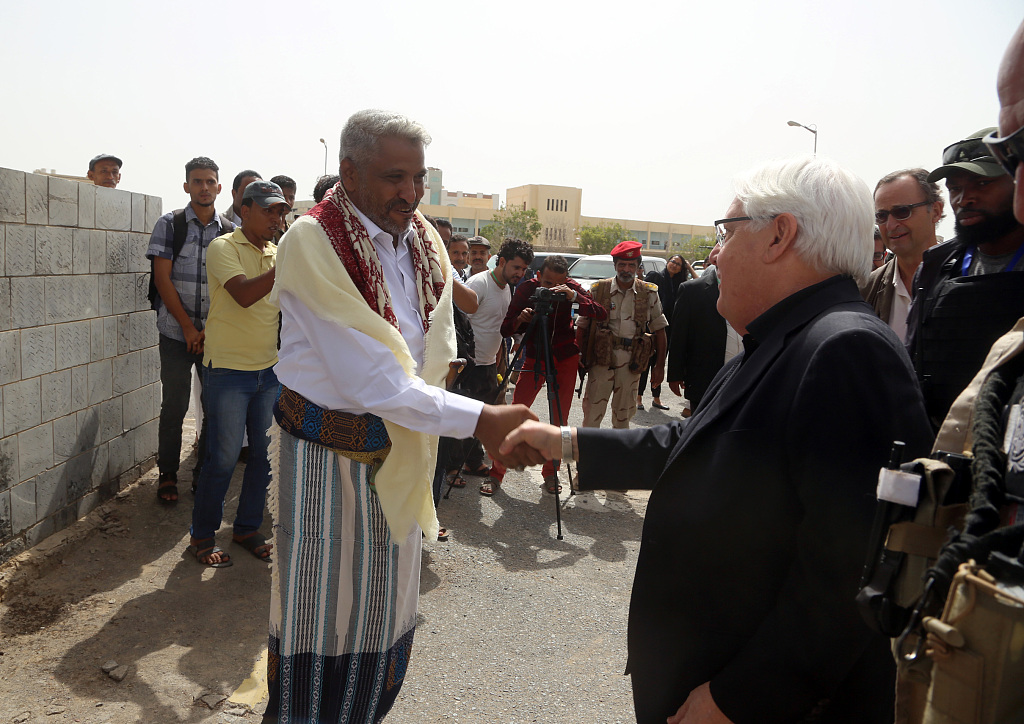SANAA, Jan. 30 (Xinhua) - Visiting UN special envoy to Yemen Martin Griffiths on Wednesday welcomed the handover of seven captured Yemeni Houthi rebels by Saudi-led coalition (SLC) to the International Committee of the Red Cross (ICRC).

UN Special Envoy for Yemen Martin Griffiths (R) shakes hands with Huthi-appointed local officials in the embattled Yemeni Red Sea port city of Hodeida on January 29, 2019. (Photo: VCG)
"The SE (special envoy) welcomes the SLC's decision to release 7 Ansar Allah (Houthi group) prisoners. The ICRC transferred the prisoners from Riyadh to Sanaa today (Wednesday)," Griffiths said in Twitter, just a day after the rebels released a sick Saudi soldier.
"The SE is very encouraged by this positive spirit from the two parties, and hopes this will give a push to the rapid implementation of the prisoner exchange agreement," he added.
Meanwhile, the ICRC tweeted "it facilitated today (Wednesday) the safe return of 7 Yemeni nationals from Riyadh to Sanaa on board our plane."
On Tuesday, Griffiths welcomed the release of a captured Saudi Arabian soldier by the Houthi rebels. The ICRC transferred the Saudi prisoner from Sanaa to Riyadh on the same day.
Houthis said in a statement that the release of sick Saudi soldier Musa Awagi came as a "humanitarian initiative."
The United Nations has been pushing for implementing an all-out prisoner swap deal, a cease-fire and withdrawal of Yemeni rival forces from Yemen's main port city of Hodeidah in line with a peace agreement reached in Stockholm last month.
The Iranian-allied Houthi rebels and the coalition-backed exiled government held a series of UN-sponsored meetings last week in Jordan to discuss the lists of prisoners to be swapped.
Griffiths arrived in the Yemeni capital Sanaa on Monday to break the stalemate over Hodeidah's peace deal. The cease-fire deal went into force on Dec. 18, 2018, but the withdrawal of the rival forces has yet to be fulfilled.
Saudi Arabia has been leading an Arab military coalition that started to intervene in Yemen in 2015 to support the internationally-recognized government of President Abd-Rabbu Mansour Hadi after the Houthi rebels forced him into exile and seized much of the country's north.
The four-year war has killed more than 10,000 people, mostly civilians, displaced 3 million others and pushed Yemen to the brink of famine.


